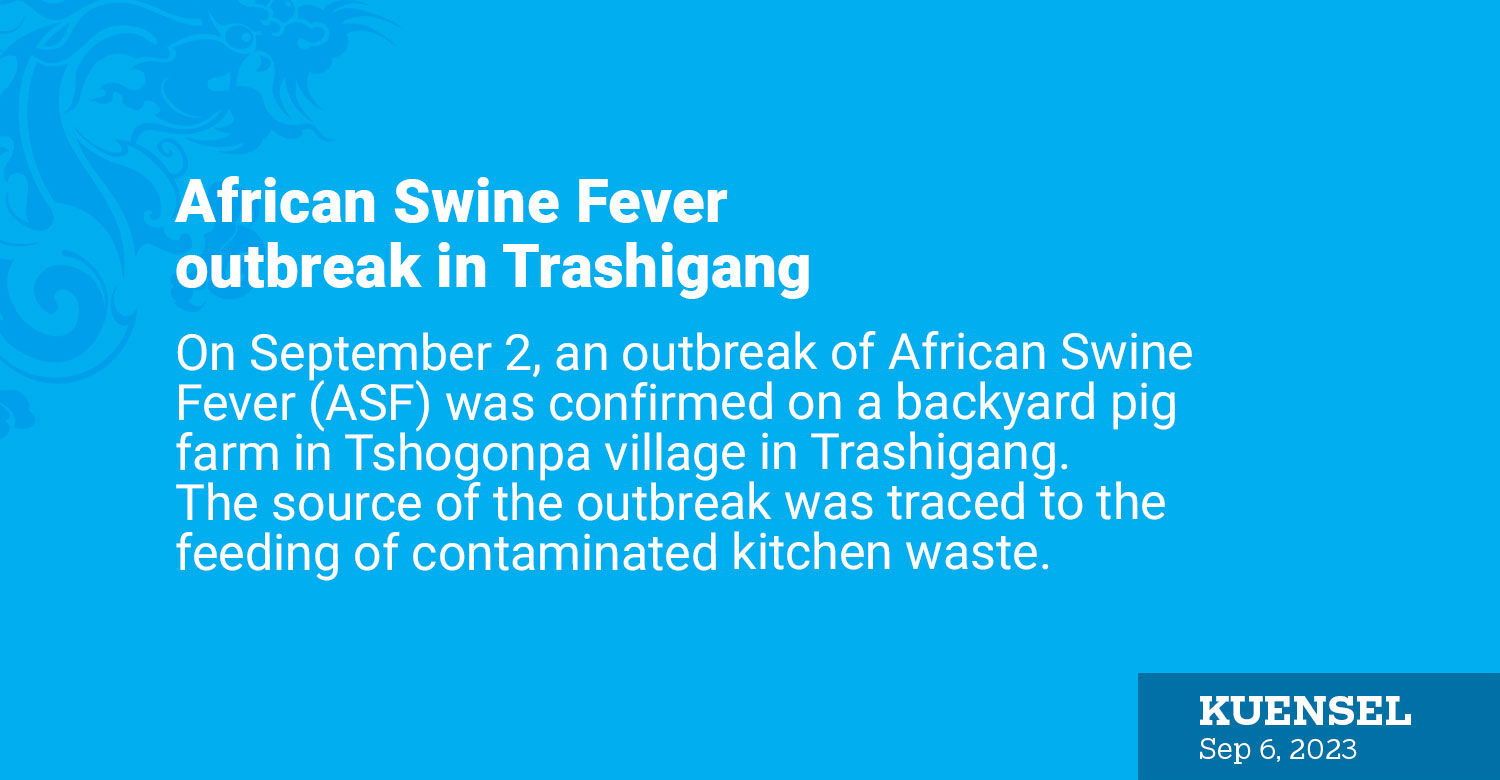Sherab Lhamo
On September 2, an outbreak of African Swine Fever (ASF) was confirmed on a backyard pig farm in Tshogonpa village in Trashigang.
The source of the outbreak was traced to the feeding of contaminated kitchen waste.
A local man had illicitly sold fresh pork imported from Darranga, Assam, India, to the affected pig farmer, inadvertently introducing the ASF virus outbreak.
The offender was fined Nu 69,000 by the Bhutan Food and Drug Authority, as stated in the Ministry of Agriculture and Livestock notification.
The ministry highlighted two significant contributing factors to the outbreak—poor farm biosecurity and a lack of adoption of good farming practices.
Despite extensive advocacy and awareness efforts directed at pig farmers to enhance farm biosecurity, including good farm management and pig husbandry practices, there has been limited progress in safeguarding their farms.
The ministry emphasised that the import of live pigs, pork, and pork products into the country has been banned since July 27, 2022.
As of September 4, Bhutan Agriculture and Food Regulatory Authority (BFRA) had collected Nu 4.9 million in fines imposed for the illegal import of fresh pork from across the border.
The ministry further announced on December 15, 2022, that those found in breach of the notification would be fined ten times the market value of the seized pork products, and the licences of business entities involved would be suspended.
Ministry issued a stern warning that individuals proven to have introduced the ASF virus into farms or localities through the illegal import of live pigs and pork products would be held responsible for covering all costs incurred in responding to the outbreak, including compensation to affected farmers.
The first case of ASF was reported on May 13, 2021, in roaming pigs in Phuentsholing.


